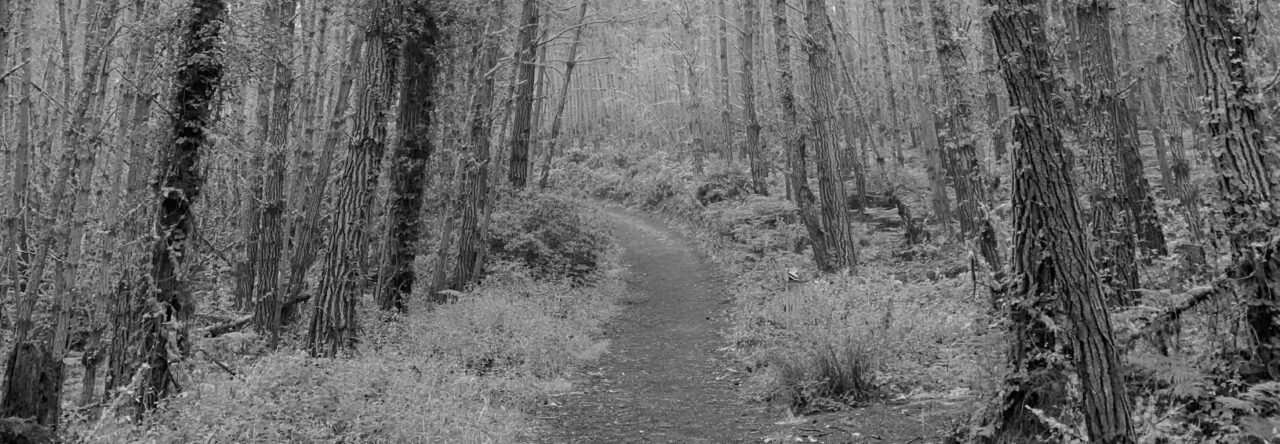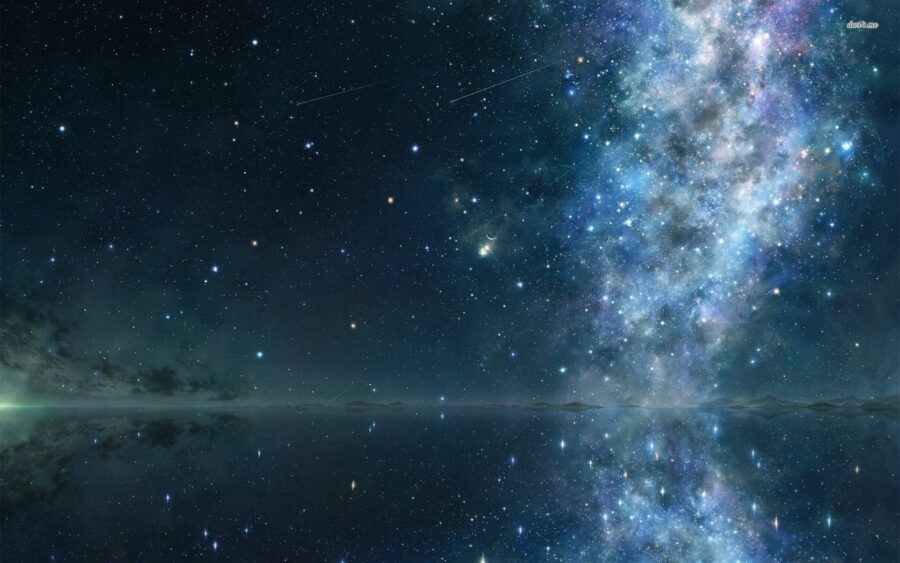La Primavera I’ve seen the world end more times than I can count as I sit here watching the dripping sun melt into the bay I wonder what might be said of us many millennia hence & millennia upon millennia upon millennia upon millennia when the sun engulfs the earth in a wave of fire & after when every drop of starlight dries not with a bang but whispering what I wonder will be left of us our art our science our lies & loves our humanity somewhere drifting through space on a golden record a newborn baby crying into the emptiness of light
Tag: Reflections
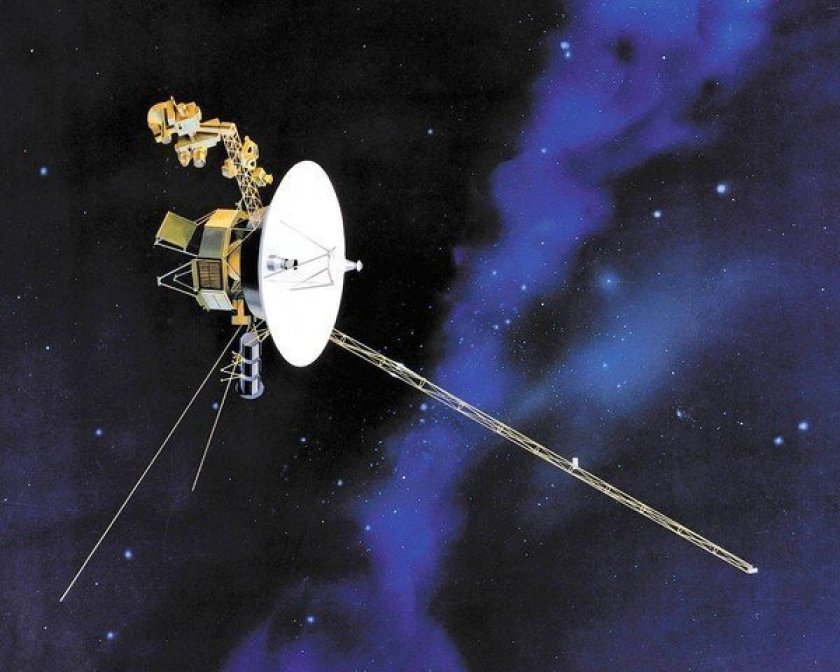

O Death, where is thy Pyrrhic victory?
O Death, where is thy cursèd venom sting?
Alas, from sullied tank of algae pine
Dost thou into latrine Charybdis gyre —
Like Death did I with net as scythe reap thou
Sans pomp nor circumstance nor fun’ral shroud;
Alone swam’st thou, forsaken and deprived
As Sisyphus condemned to search for friends;
Alack!
Thy rock the mountain ne’re shall overcome,
Alack!
For thou art Solamente — fish reborn
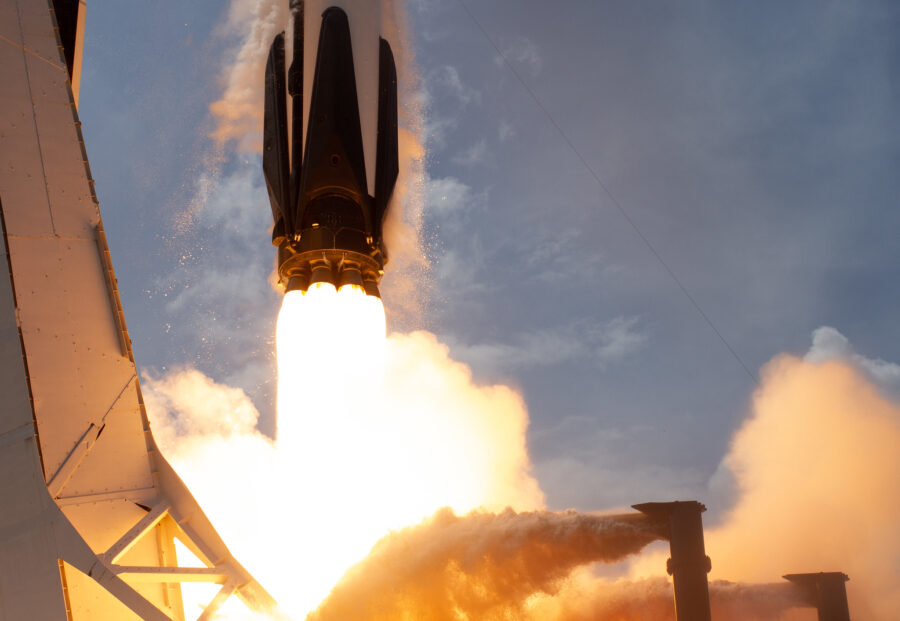
All was silent
On Pad 39 —
Fifty-one years
And thirty billion miles
Since Armstrong and Aldrin
Dipped their timid toes
In Selene’s Tranquil Sea
The clock strikes 10…
We hold our breath
9, 8, 7, 6, 5…
We close our eyes
4, 3, 2, 1…0
We jolt with liftoff!
As sky clears
And Bob and Doug
Ride a once-dormant Dragon
From ashes to aether
On the thirtieth of May.
Theirs is but one step
Chasing Time’s Arrow
To lift heavy ignorance
And shine a candle
Into quiet Unknown —
To climb up, up
Until we have scaled
Mons Vero
And we are at last
Alone with the cosmos.
Yet as we drift out there
We are never alone —
From Hypatia to Lovelace
Coleman to Jackson
Hamilton to Jemison
And me to you
Our candle joins the chorus
Of Elysian light in a
Cantata d’amore
Across every hue
Of the human rainbow
And so when we witness
Hephaestus’s Crucible of Creation
Breathing light into darkness
Forging stars, nebulae, galaxies
From pure chaos
We will discover a truth
Long known by the sinews
Of the heart —
From dust to dust
And ashes to ashes
We go as one
One Humanity
One Life
One Universe
All stardust.
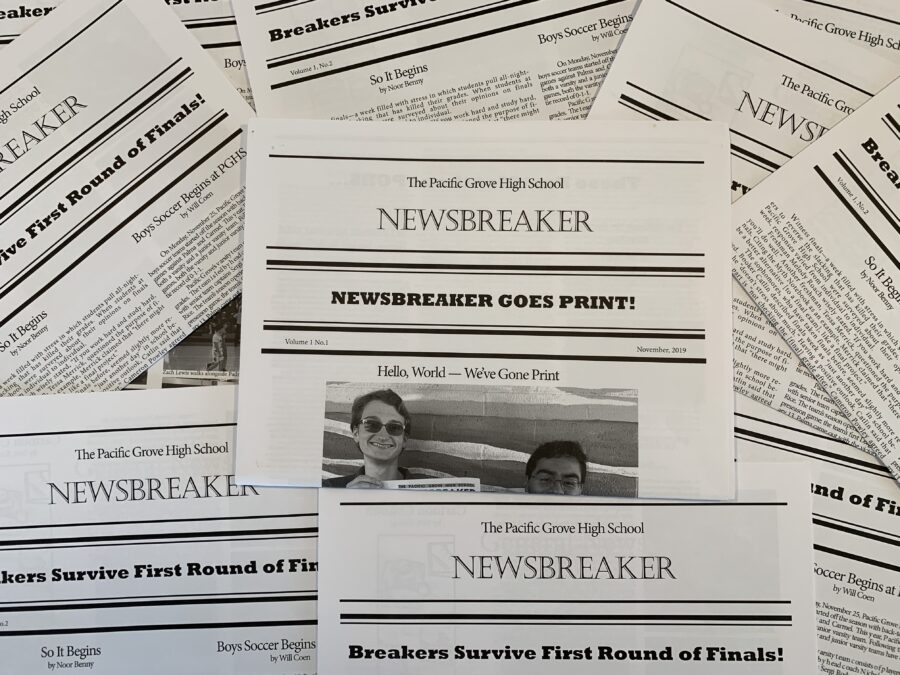
Hello again! To view the .pdf of the sixth and final issue of The NewsBreaker for which I am editor, please follow the link below.
Unfortunately, due to the COVID-19 pandemic, I am unable to offer any paper copies of this issue.
Below is my final “Words From Your Editor” commentary excerpted from the aforesaid issue.
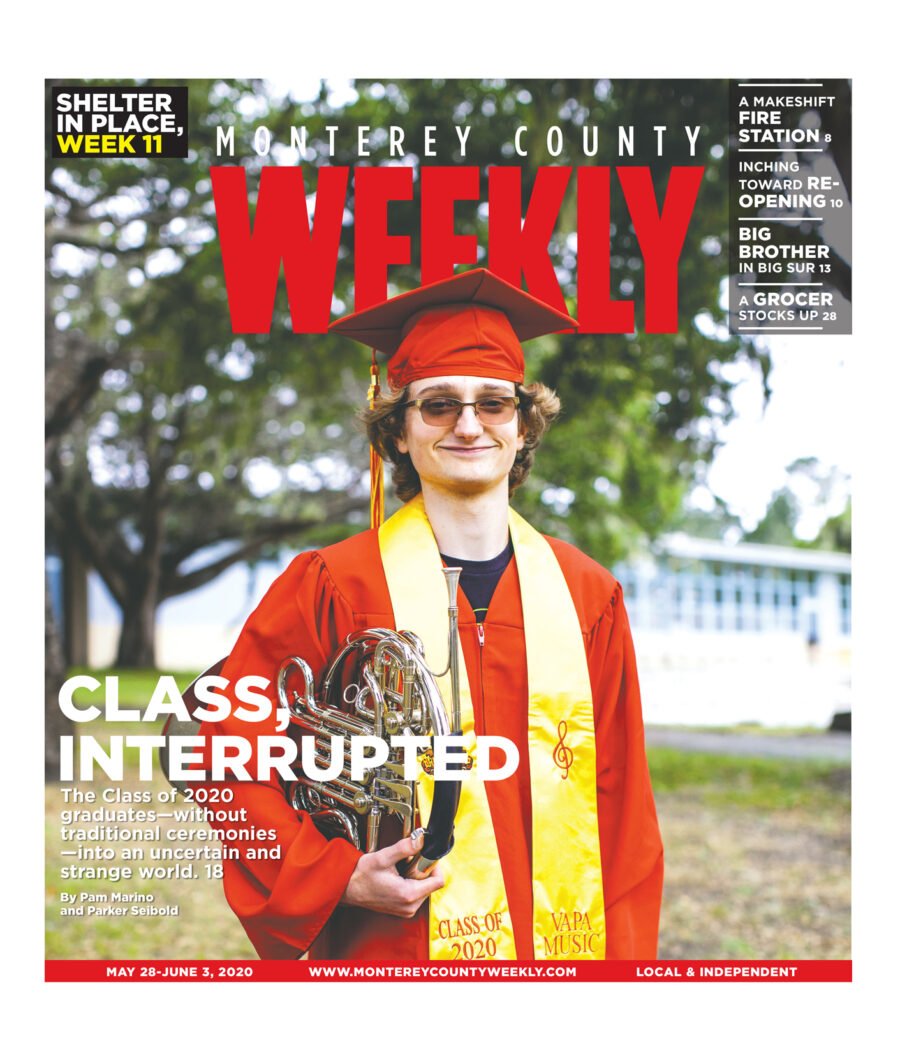
Hello Internet! I would like to share with you the speech that I gave this past Friday, May 29, at the Laguna Seca raceway for the Pacific Grove High School Class of 2020 graduation ceremony. You may also read an article on my speech by the Monterey County Weekly here. The text of the speech follows.
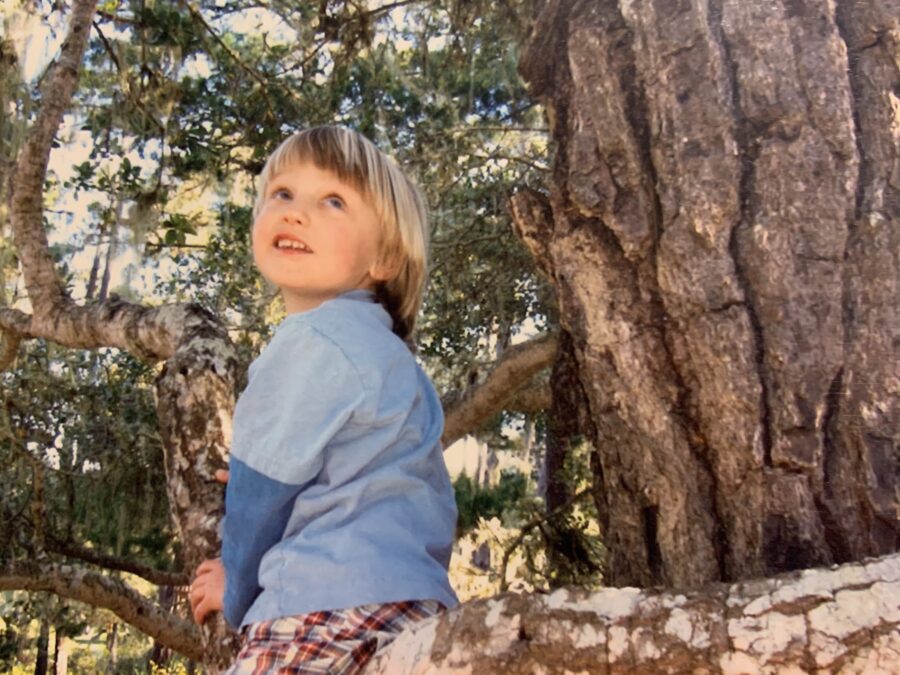
These are the times that try men’s souls.
Thomas Paine
It is times like these when it is all too easy to acquiesce to the sense of dark despair pervading the world. I, too, feel the almost hypnotic seduction of the darkness, a suffocating paranoia fueled by relentless media. As one by one tournaments and festivals, classes and clubs, dances and even graduation ceremonies cancel, stocks plunge into losses whose red horror rivals that upon Lady Macbeth’s hands, and the world seems to be crumbling from its very center as the ground beneath our feet—once so visceral and so solid—disintegrates into mere wisps of failed promises. And let us not forget that beyond the inevitability of the infection and death of millions of people worldwide due to the coronavirus, the conflicts in the Middle East and in Africa have not ceased; the immigration crisis involving the displacement of hundreds of millions is growing graver every minute of every day, and climate change is still marching towards its point of no return. You would not be downplaying our situation if you claimed that we perhaps face total, utter, collapse as a species. Now, more than ever, does it seem futile to fight our seemingly inescapable fate, and perhaps it is simply best to end the game now and leave others to pick up the pieces.
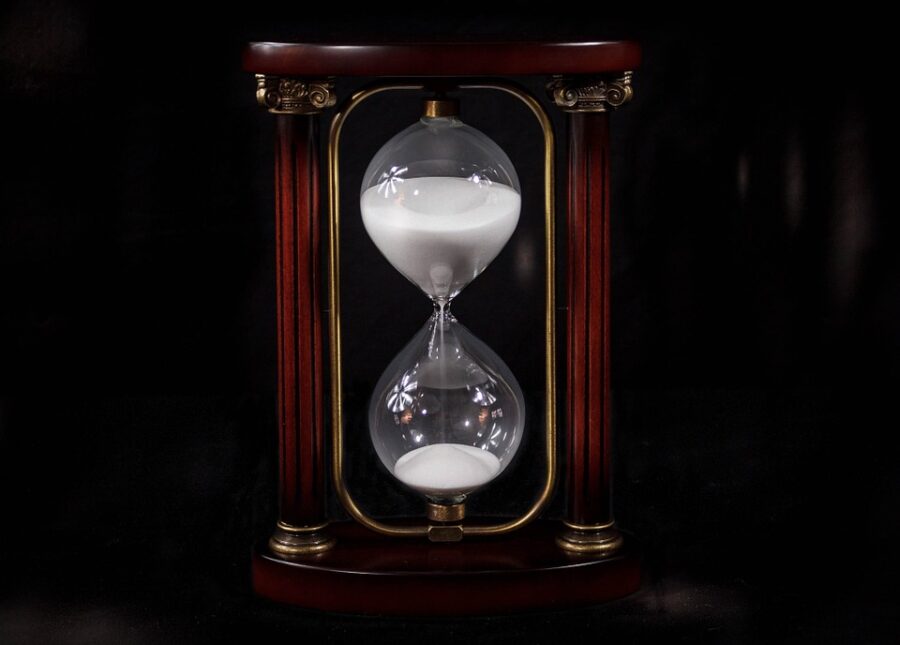
As a seventeen-year old high school senior with hopes of attending college to pursue studies in history, I am intrigued by philosopher George Santayana’s famous phrase, “Those who cannot remember the past are condemned to repeat it.” If we study the demise of once mighty civilizations, can we learn how to save our own civilizations from collapse?
I ask this question in light of the upcoming United Nations’ 2019 Climate Action Summit. Among those calling for action will be notable personalities such as Greta Thunberg, who at age sixteen is perhaps the most prominent climate activist of my generation.
Despite the logical arguments for curbing climate change, powerful governmental and private interest groups will seek to dissuade action by questioning the validity of the science that underpins climate change research. Even Thunberg herself is under personal attack. Climate deniers call her a puppet and denigrate her for being autistic. But where in this surreal tit-for-tat media sortie is the historical perspective?
Look to North Africa and Mesoamerica for examples of the impacts of drastic shifts in climate on human society. Roughly 10,000 thousand years ago North Africa was filled with grasslands, forests, rivers, and lakes. Overgrazing driven by people and combined with natural change fueled an environmental transition that created the Sahara Desert. During the eighth to ninth centuries CE, the Mayan civilization rapidly collapsed over the period of only about 100 years. In his novel Collapse, Geographer Jared Diamond concluded that a drought, badly aggravated by deforestation, precipitated the desertion of Mayan cities such as Tikal and Chichen Itza. As with North Africa, human action tipped the delicate balance holding civilization intact and caused a mass collapse of society.
Our distant relatives succumbed to regional catastrophes brought on by a combination of natural climate change and unsustainable land use practices. Our actions, however, are playing out on a global scale. We are producing the CO2 that is causing the Earth to warm, the polar ice caps to melt, and the sea level to rise. The burning of the Amazon rainforest combined with drought conditions and social unrest threatens to cause a repeat of the story of the Mayan collapse with global ramifications; billions of people around the globe are vulnerable to sea level rise and monster storms fueled by warming temperatures. Even the developers of the video game Civilization VI added more extreme natural disasters to correspond to higher amounts of CO2 in the virtual atmosphere to illustrate the dangers of unchecked over-industrialization.
History is replete with examples where climate variations displaced people and caused long-established civilizations to fail entirely. It seems we face the same dilemma that many ancient, once prominent civilizations once did: strive to sustain our current lifestyles in the face of increasing hardship or change course to avoid disaster.
Did these past civilizations fight to counteract the changes they experienced or did they sit idly by as they collapsed? Dr. Jason Ur of Harvard University explains: “When we excavate the remains of past civilizations, we rarely find any evidence that they made any attempts to adapt in the face of a changing climate. I view this inflexibility as the real reason for collapse.”
Unlike past civilizations, thankfully, we possess the knowledge and capacity to reverse or to at least reduce the effects of climate change. But what concerns me is that like our distant relatives we may not do so, and history will repeat itself.
I believe that the greatest challenge we as a society face is not how we will fight climate change, but how we will overcome personal differences in order to make the best decisions for the future of our planet. While we are unable to force people to make the choices that would best benefit our planet, I believe that our greatest ally in mobilizing the most people for the war on climate change is knowledge. Knowledge that you can impart through communication.
But as a person not yet old enough to vote, I ask, “how?” How can I help? I believe that mass communication is the answer. The advent of the internet greatly facilitated mass communication around the world and the spread of knowledge. Unfortunately, people and interests groups have abused the power of the internet to spread falsehoods about the state of the planet and the effects of climate change. So use those same networks to spread truths about the state of the planet. We must not let our voices be silenced, for we will be heard, loud and clear. Whatever the platform and whatever the mode of communication, you have the world’s ear. What you say is up to you, but the message is clear: we must not sit idly by while our civilizations crumble. We, too, can become activists like Thundberg simply by standing up to defend our planet and by inspiring others to join us.
